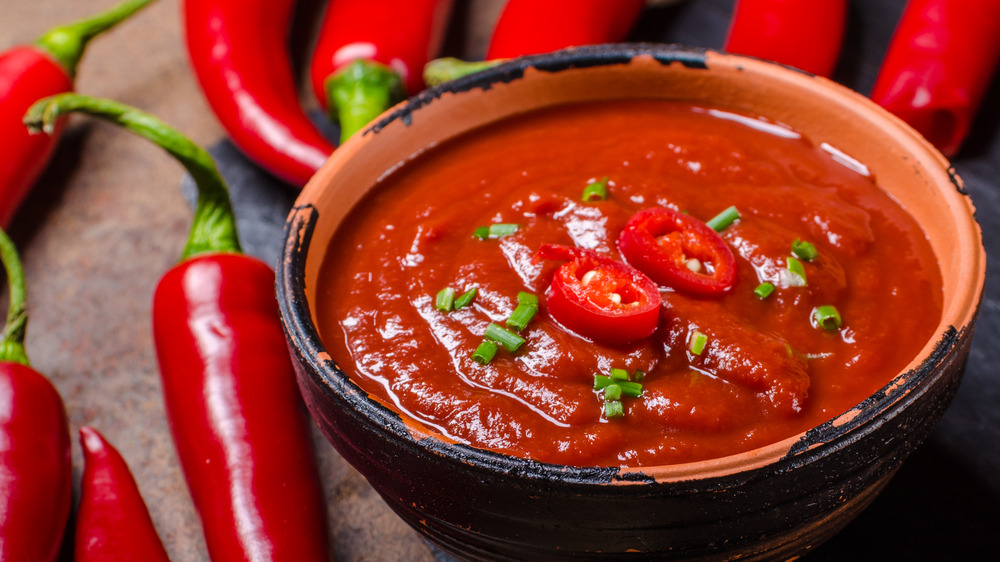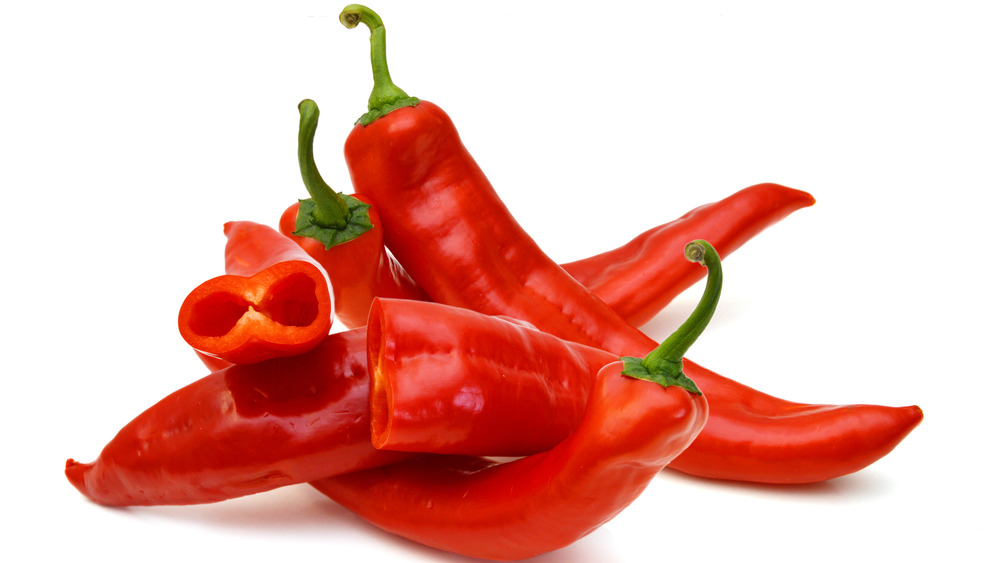Is Eating Hot Sauce Good For You?
Adding a splash of hot sauce to your meal creates an entirely new culinary sensation. Hot sauce can really turn the blandest dishes from "blah" to "whoa!" — or at least take the current flavors up a notch. Whether you prefer your hot sauce on the milder, sweeter side or you're a daredevil who can handle the extreme heat of the ghost pepper, Carolina reaper, or even the world's new hottest pepper Dragon's Breath, there's a hot sauce for everyone.
But where does the intense flavor of hot sauce come from? And why do people become so addicted to it? We discovered that chili peppers carry two potent compound molecules: capsaicin and dihydrocapsaicin. When these chemicals come in contact with the tongue, the brain immediately releases endorphins, which are peptide hormones that give animals a natural "high" and make the nerves found on the tongue more susceptible to pain (per NPR).
So when you smother your stir fry with poblano sauce or chomp on a slice of pizza covered in habanero, receptors fire in your brain, your tongue absorbs the shock, saliva comes to the rescue, and you suddenly have superhero strength to fully enjoy the taste experience. But is dousing your food in hot sauce actually good for you?
How healthy is hot sauce?
For starters, hot sauce boasts some pretty appealing dietary perks. Many hot sauces on the market have zero or very few calories per serving, including Cholula, Sriracha, Tabasco, and Valentina. However, not all hot sauces are created equal. While several brands are made with just a handful of basic ingredients (typically peppers, spices, and vinegar), some hot sauces include oils, milk, sugars, fruit, vegetables, and other additives to create a thicker, creamier consistency and while these additions make the sauces richer, they also up the calories.
According to Secret Aardvark, an Oregon-based hot sauce brand that's become somewhat of a cult favorite, among the many true bonuses of hot sauce are its antioxidant, anti-aging, and anti-inflammatory properties. It also has bioactive compounds such as flavonoids, phenolic acids, carotenoids, and vitamins A, C, and E.
In an interview with Livestrong, Carol Turner, a top nutrition specialist at Chile Pepper Institute of New Mexico State University, broke down some of the potential health benefits of chili peppers and hot sauces. Depending how the research pans out, hot peppers may be able to be linked to positive outcomes involving type 2 diabetes, cardiovascular diseases, inflammation, the common cold, and many types of cancer. They may even aid weight loss and promote mental wellness.
At the end of the day, eating hot sauce gives diners an adrenaline rush like no other and makes food taste way better. So, go ahead, collect a rainbow of hot sauces, and spice up your life!

